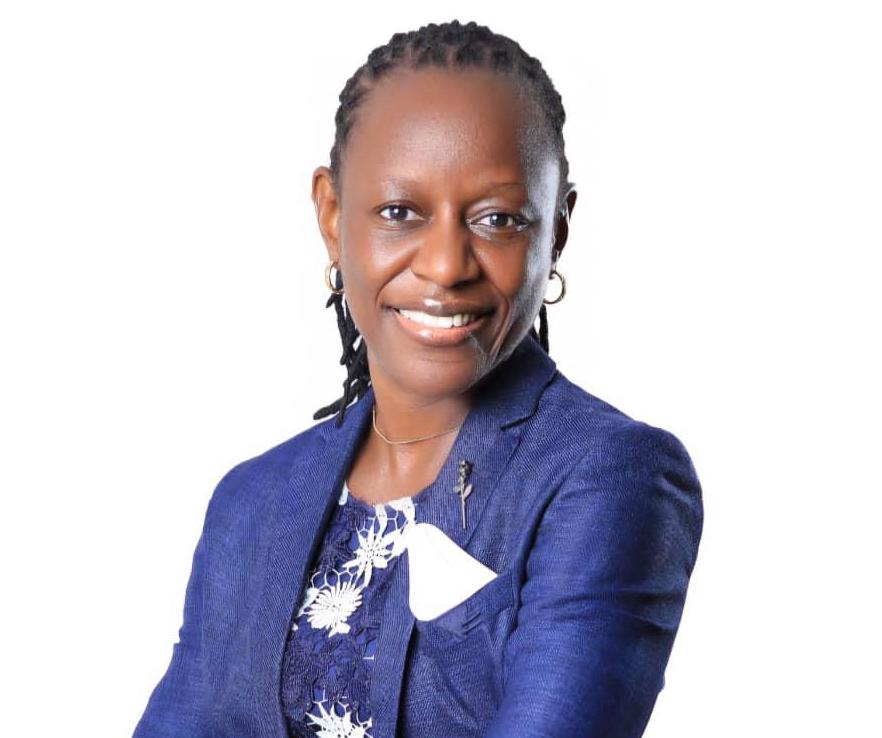Columnists
Sarah Musumba: Dear Plastic….It’s Over, Signed Uganda
Toxic. Clingy. Everywhere. Uganda Needs to break up with Plastic!
Once upon a dusty Saturday in Kampala, a Fuso truck rumbles past, stacked high with buveera (plastic paper bags), water containers, soda bottles, and jerry cans. Now imagine 120 of those rolling in every single day, not with goods, but with waste. That’s Uganda’s plastic problem in motion.
According to (National Environment Management Authority (NEMA), Uganda generates 600 metric tonnes of plastic daily, which is over 219,000 tonnes a year. It is estimated that Kampala alone generates 800,000 tonnes annually, which can be equated to the weight of 145,000 Fuso trucks lined bumper to bumper from Kampala to Nairobi and back, yet only 40% of it is properly collected or recycled.
Left unchecked, plastic does not vanish. It morphs rivers into garbage streams, roads into dumping grounds, and Lake Victoria into a plastic graveyard. Across Africa, 19 to 25 million tonnes of plastic are generated annually, with only about 10% of it recycled, according to WHO Africa.
We are up against a four-pronged threat, and every day we delay, it gets harder to beat, i.e.:
- Health Hazards: This is personal.
Burning plastic is not just an eyesore. It is toxic. It releases cancer-causing chemicals into the air we breathe. But it does not stop there. Microplastics have quietly crept into our food chain and have now been found in human kidneys, livers, and even placentas. Yes! The plastic bottle you tossed could come back in your next meal.
Picture this… even tap water is not safe.
A review published in Frontiers in Physiology highlights that microplastics and nanoplastics can infiltrate the body through ingestion, inhalation, and skin contact. Furthermore, plastic products can leach harmful chemicals into our water supply, potentially leading to developmental issues, fertility problems, neurological disorders, and immune system damage.
A 2019 Guardian report linked chemicals in plastics to over 350,000 global heart disease deaths. And in countries like Uganda, between 400,000 to 1 million people die every year from illnesses, including cancers, tied to mismanaged plastic waste!
AND… let us not forget the mosquito problem. Plastic waste left to rot becomes a perfect breeding ground for dengue fever and malaria, which are still among the biggest killers in Sub-Saharan Africa.
- Environmental Damage: We are choking the planet.
Our environment is under siege, and plastic is at the forefront of the challenge. Right now, over 15,000 species are at risk of extinction because of plastic pollution. From sea turtles mistaking bags for jellyfish to birds and fish dying from entanglement or ingestion. It is a silent massacre happening on land and in our waters.
But the damage does not stop with wildlife. Plastic is also a significant contributor to climate change. According to the OECD, plastic production accounted for 3.4% of global greenhouse gas emissions in 2019, with 90% of these emissions attributed to the use of fossil fuels. And it is getting worse. If we do nothing, emissions from plastic alone could double by 2060.
The World Economic Forum warns that by 2050, plastics could account for 20% of the world’s oil consumption and contribute up to 15% of global carbon emissions. That is nearly the same as the entire transportation sector today. This is not just about trash. It is about survival. The planet is running out of breath, and plastic is tightening the noose!.
- Economic Costs: Plastic is draining our wallets and our future.
Plastic pollution is not just problematic. It is expensive. According to the UNEP, the world loses $13 billion annually due to the environmental and economic damage caused by plastics. Now, let us zoom in on Africa, a continent rich in natural beauty yet heavily dependent on fisheries and tourism. We are bleeding money! Polluted beaches turn away tourists. Contaminated waters kill fish stocks. Damaged brand images mean fewer visitors, less foreign exchange, and lost jobs!
In Uganda, clogged drainage systems caused by plastic waste cost cities like Kampala billions of shillings every year in repairs and emergency responses to floods. Every time it rains, plastic-choked drains turn streets into rivers. Businesses close. Transport stalls and people lose income.
And while we are battling the floods, plastic continues to erode long-term investments, from healthcare to infrastructure. Left unchecked, plastic is not just trash; it is a threat to the environment. It is a financial liability we simply cannot afford.
- A Generational Crisis: And a Chance to Flip the Script
Plastic does not just disappear on its own. It sticks around for up to 500 years. That means the plastic bottle you toss today will still be here when your great-great-great-grandchildren are scrolling through holograms in 2525.
In Uganda, where 78% of the population is under 30, this is not someone else’s problem. It is a youth inheritance. They are the ones who will live with the blocked drains, polluted lakes, and shrinking fish stocks. They will pay the health bills, rebuild after the floods, and clean up a mess they did not create.
But here is the twist in the plot: Ugandans and their organisations are not waiting for permission to lead.
For instance, in 2023, Quality Chemical Industries (Qcil) constructed a waste management and segregation scrap store, which helps us further segregate our waste to identify what qualifies for reuse, recycling, or resale.
This state-of-the-art facility separates recyclable materials, such as paper, plastics, and scrap metals generated onsite, aiming to achieve zero unprocessed scrap, which leaves the facility and contributes to Qcil’s goal of zero waste to landfill by 2025.
That said, this World Environment Day, let us rewrite the ending:
- Say no to single-use plastics
- Support recyclers and innovators
- Advocate for circular policies
- Be part of the solution, i.e., start segregating your waste at the source and inspire others to do the same.
Because plastic is not just a nuisance. It’s a challenge we have to beat.
And honestly? This breakup is long overdue.
What say you…? Ready to ditch the plastic?
The author, Sarah Musumba, is an Environmental, Social & Governance Lead at Qcil
Comments























